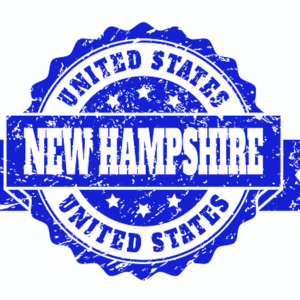The Tax Foundation released its annual Business Tax Climate Index Wednesday, and for the second year in a row, New Hampshire was the only New England state ranked in the top 10 — or even the top 20.
The foundation’s analysis of tax policy ranked New Hampshire sixth in the nation, far ahead of Massachusetts and the rest of the region. The “New Hampshire Advantage” approach — no broad-based sales or income taxes — played a key role.
“This latest ranking reaffirms New Hampshire’s status as New England’s premier economic powerhouse,” said Gov. Chris Sununu. “Thanks to good management, smart decisions, and focusing on families, our pro-jobs agenda is working for New Hampshire.”
And there was more good news a few hours later with the release of the Business and Industry Association Report on consumer confidence from the UNH Survey Center.
Granite Staters are feeling more optimistic after the economic downturn of the lockdown and the original COVID-19 outbreak. Today, 35 percent expect businesses to experience good times in the near future, 25 percent expect bad times, and 40 percent expect a mix.
Unfortunately, partisan politics appears to be interjecting itself into views of the economy. “Nearly two-thirds of Republicans and 38 percent of independents anticipate good business conditions in New Hampshire during the next twelve months, but only 5 percent of Democrats do,” that study shows.
“It’s encouraging to see many Granite Staters’ view of future economic conditions improving,” said BIA President Jim Roche, “but it’s discouraging to see the partisan divide remains.”
The partisan gap in optimism has reached record highs, the report states, mainly because Republican confidence in the economy has returned to pre-COVID levels while Democrats remain pessimistic.
Overall, Republicans are 59 points more optimistic about the state’s economy than Democrats in New Hampshire.
There’s also some troubling news on the tax front.
“It’s a mixed story, both good news and a not so good news story,” David Juvet of the BIA tells NHJournal. “Overall, New Hampshire ranks relatively high on business tax climate, and that’s attractive for business attraction to the state and business retention.”
“When you delve a little deeper into the numbers, however, you see that at the business tax level, corporate taxes are very high,” Juvet says. The study shows that New Hampshire ranks #44 in the country for business tax rates, lower than in previous years. New Hampshire also ranks #41 in unemployment insurance taxes and #47 in property tax rates.
“The taxes paid by businesses should be a concern to everyone because they are ultimately borne by individuals through lower wages, increased prices, and decreased shareholder value,” Tax Foundation says.
Before the coronavirus pandemic, New Hampshire had one of the lowest unemployment rates in the nation. It had been below 3 percent since January of 2016. The state also had a business tax reductions schedule and an ever-growing surplus.
In April, New Hampshire’s unemployment spiked to more than 17 percent during the height of the pandemic and business closures. As of September, it had fallen to 6.0 percent when seasonally adjusted, according to the Bureau of Labor Statistics. That ranks New Hampshire at #14 for lowest jobless rate in the nation.

